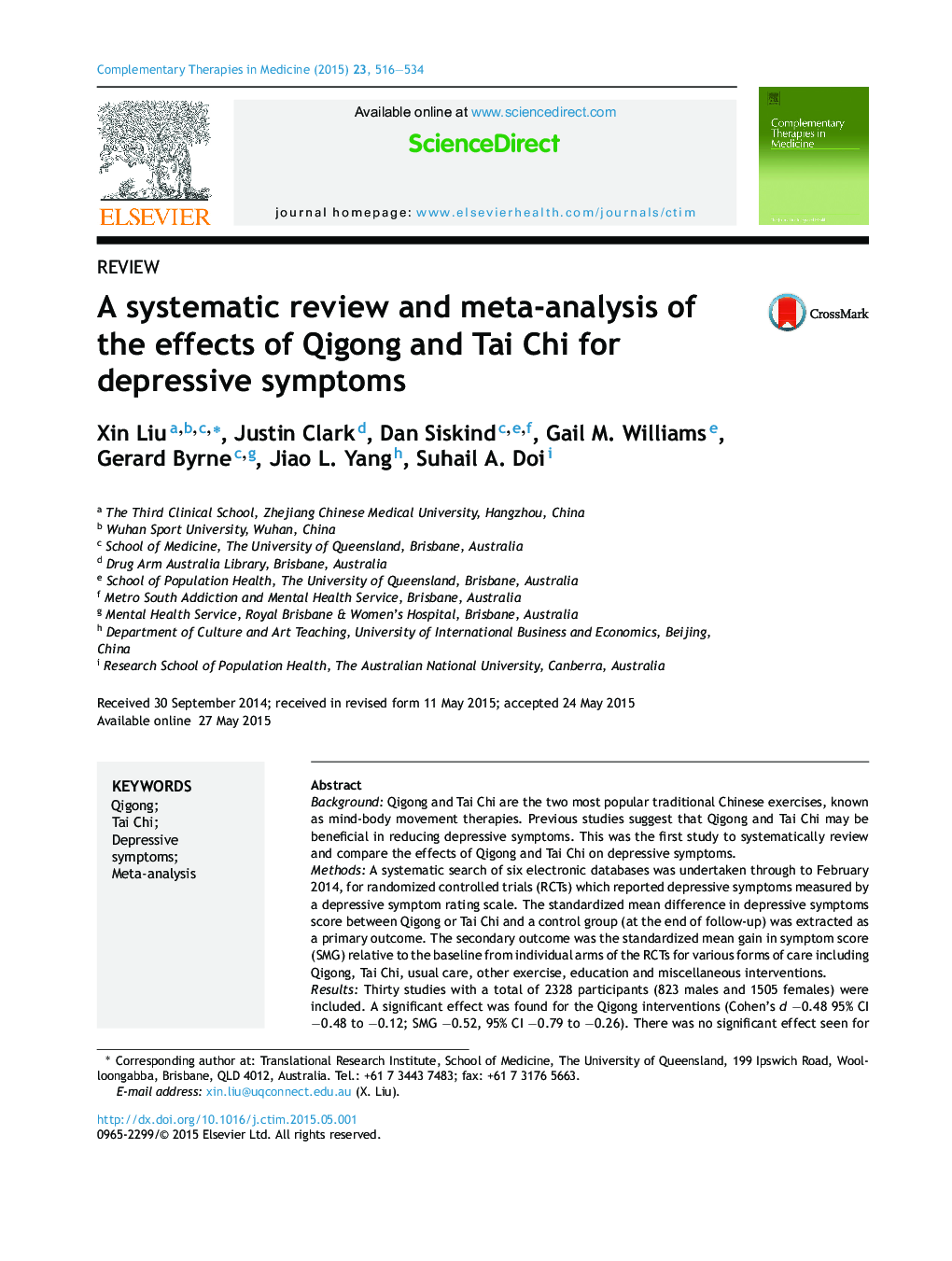| کد مقاله | کد نشریه | سال انتشار | مقاله انگلیسی | نسخه تمام متن |
|---|---|---|---|---|
| 2628565 | 1136475 | 2015 | 19 صفحه PDF | دانلود رایگان |
• Qigong has been shown to be beneficial for reducing depressive symptom severity.
• Tai Chi appears to be ineffective in reducing depressive symptom severity.
• All other forms of care do not result in a change in depressive symptom severity.
BackgroundQigong and Tai Chi are the two most popular traditional Chinese exercises, known as mind-body movement therapies. Previous studies suggest that Qigong and Tai Chi may be beneficial in reducing depressive symptoms. This was the first study to systematically review and compare the effects of Qigong and Tai Chi on depressive symptoms.MethodsA systematic search of six electronic databases was undertaken through to February 2014, for randomized controlled trials (RCTs) which reported depressive symptoms measured by a depressive symptom rating scale. The standardized mean difference in depressive symptoms score between Qigong or Tai Chi and a control group (at the end of follow-up) was extracted as a primary outcome. The secondary outcome was the standardized mean gain in symptom score (SMG) relative to the baseline from individual arms of the RCTs for various forms of care including Qigong, Tai Chi, usual care, other exercise, education and miscellaneous interventions.ResultsThirty studies with a total of 2328 participants (823 males and 1505 females) were included. A significant effect was found for the Qigong interventions (Cohen's d −0.48 95% CI −0.48 to −0.12; SMG −0.52, 95% CI −0.79 to −0.26). There was no significant effect seen for Tai Chi for the primary endpoint. No mean change in symptom scores were seen for Tai Chi, usual care, other exercises, education and the ‘miscellaneous’ group in pre-post assessment in single arms. The Qigong results were found to be robust in sensitivity analyses.ConclusionsQigong appears to be beneficial for reducing depressive symptom severity. However, given the low quality of the included studies and the documented evidence of publication bias, these results should be viewed cautiously.
Journal: Complementary Therapies in Medicine - Volume 23, Issue 4, August 2015, Pages 516–534
